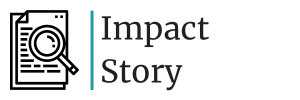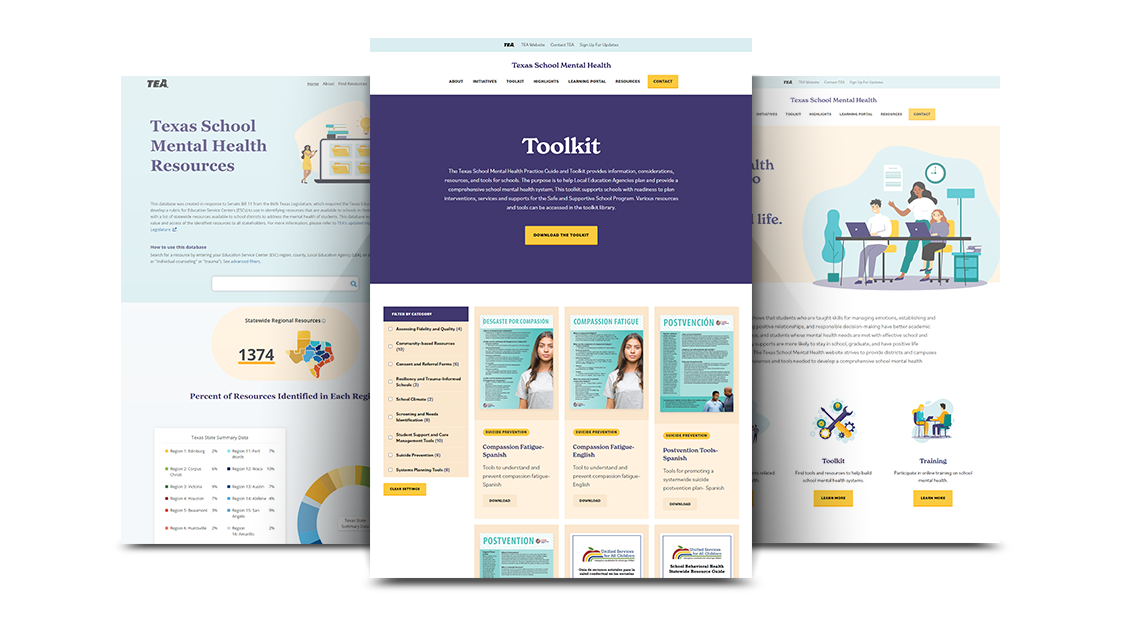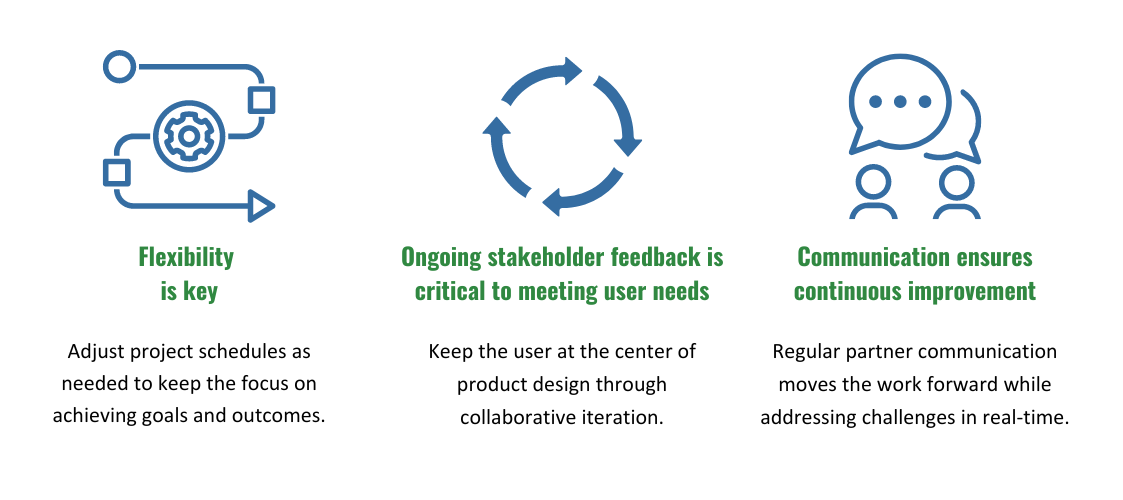
Mental health has a substantial impact on student academic performance. As the need for mental health resources in Texas significantly outpace availability and access, schools are often the best location for students to connect with necessary mental health services and community support.
The Texas Education Agency and its partners, including the Region 14 Comprehensive Center, are building statewide school-based mental health supports to ensure students, families, schools, and districts have access to the tools and resources necessary to effectively address mental and behavioral health needs.
Driving Forces
In 2019 the Texas Legislature passed multiple bills to increase availability and access to mental health resources for students and families across the state. The Texas Education Agency (TEA) was made responsible for coordinating data collection, training educators, and reporting findings related to school mental health resources. As part of a collective strategy emerging from this legislation, TEA recognized an opportunity to enhance existing work streams, expand current partnerships, and build new school supports.
“Increasing awareness of what mental health means and the resources and information available for students and families is critical,” Julie Wayman, Director of Mental and Behavioral Health in the TEA Supportive Schools Division, said. “Before the passage of these bills, mental health literacy was nonexistent on a large scale.”
Cross-agency Partnerships
TEA was already engaged in significant work in student mental health through a Project AWARE grant and routine engagement with the 20 regional Education Service Centers (ESCs) throughout the state to provide training and professional learning opportunities.
“To build integrated services for students and schools, we sought partners working on similar initiatives,” Julie Wayman said. As a result, TEA partnered with the Texas Health and Human Services Commission (HHSC), South-Southwest Mental Health Technology Transfer Center (SSW MHTTC) at the University of Texas (UT) at Austin, Texas Institute for Excellence in Mental Health (TIEMH) at UT Austin, and the Region 14 Comprehensive Center (R14CC).
"It made sense to bring our partners together to have a collective impact on the work that we were doing and put all of our gifts and talents together to achieve our shared goals."
Building Tools and Resources
R14CC collaborated with TEA and their partners to provide comprehensive support to stakeholders at the school, district, regional, and state levels.
Texas School Mental Health Database
In 2021, R14CC and TEA worked with the 20 regional Education Services Centers (ESCs) to design a database to streamline data collection, better validate data quality, and publish publicly searchable results. In April 2022, the Texas School Mental Health Database launched, allowing more than 4,900 users to date to search for available resources within their region, county, and school district.
Texas School Mental Health Practice Guide and Toolkit
R14CC joined stakeholders from TEA, HHSC, and the SSW MHTTC at UT Austin to contribute to creating the Texas School Mental Health Practice Guide and Toolkit. The final product includes a statewide framework for school mental health, 47 tools, samples and templates, and comprehensive information to help practitioners implement the framework.
Texas School Mental Health Website
R14CC provided feedback on the new Texas School Mental Health Website and forthcoming Safe and Supportive School Programs virtual training modules developed by TEA's Project AWARE partners.
Collaborative Task Force on Public School Mental Health Services Legislative Report
House Bill 906 created a new Collaborative Task Force on Public School Mental Health Services, which TEA administers. R14CC provided support as the task force worked on its required legislative report, including designing high-quality focus groups and facilitating training for members as part of data collection activities.
Lessons Learned
After two years of working together, R14CC, TEA, and its partners have learned several critical lessons integral to the continuous improvement of our collective actions and supporting the needs of Texas students. These lessons will inform our future efforts and can be helpful for other SEAs.
Sustainable Foundations
Building structural supports for schools and districts provides scaffolding for sustaining initiatives. With key components of the work in place, further customization can help meet the unique needs of local communities. In addition, TEA seeks to increase training opportunities and engage in policy discussions during the 2023 legislative session to brief policymakers on progress and ideas for continuing access. The tools and resources created through this collaborative effort provide the building blocks for continued movement toward quality school mental health across Texas.





